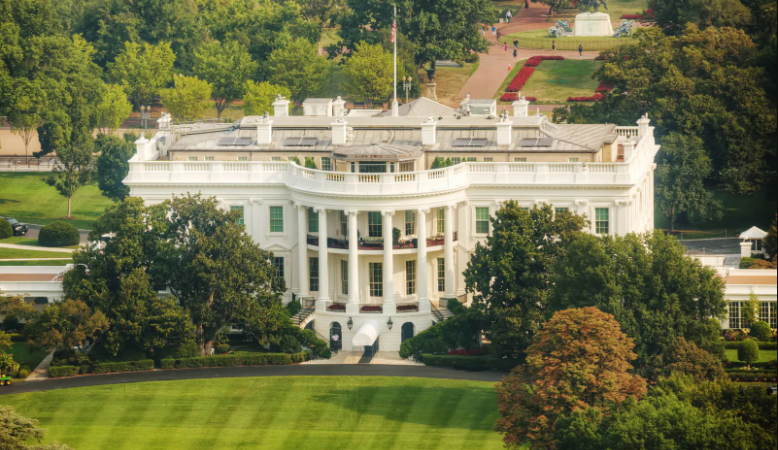Executives from the cryptocurrency industry are scheduled to meet with key White House aides and Representative Ro Khanna next week to discuss concerns surrounding digital assets and propose policy changes for the upcoming administration, according to sources familiar with the matter.
This meeting marks another significant step in the ongoing dialogue between the crypto sector and U.S. government officials as digital currencies become a focal point in the political landscape, Bloomberg reported.
Anita Dunn, the senior White House adviser who is leaving, Lael Brainard, the national economic adviser, and Bruce Reed, the deputy chief of staff, are among those anticipated to attend. The gathering follows a discussion in July that featured Dunn and Khanna along with other notable people from the cryptocurrency space, including executives from Ripple and Coinbase Global Inc.
Key Role of Cryptocurrencies in a Larger Political Campaign
It is important that Dunn attended the meeting because she is leaving her position in the White House to join a Democratic super PAC that intends to donate at least $300 million to Vice President Kamala Harris’s presidential candidacy.
Her participation highlights how strategically important it is to place conversations about cryptocurrencies within larger political campaigns, especially as Harris is becoming a major player in the future of the Democratic Party.
The crypto sector sees the forthcoming summit as a chance to express its concerns and shape legislation. Former President Donald Trump, the Republican contender, has made the cryptocurrency industry a major campaign issue by announcing his plan to undo the Biden administration’s ban on it. This background gives the conversations more substance as both sides consider how digital assets will affect the American economy and regulatory environment.
Harris-led Administration for Web3
In a similar development, some hundred members of the cryptocurrency business attended a virtual meeting held by Cleve Mesidor, the executive director of the nonprofit Blockchain Foundation and a former official in President Barack Obama’s administration.
Mesidor was upbeat about how a Harris-led administration may affect Web3 and decentralised money, especially for people of colour who are employed in the industry. She stressed that although cryptocurrency may not be Harris’s primary focus, the sector hopes that her leadership would lead to a more positive attitude towards digital assets.
“With all of the priorities, with all of the various groups that in just a week-and-a-half have really coalesced around her, she’s not going to say ‘my biggest priority is crypto’ or ‘my biggest priority is climate,’” Mesidor said in an interview.”
Mark Cuban comes out in support of Democrats?
Silicon Valley is coming out in support of Harris. While many tech leaders had deserted Democrats during President Biden’s campaign, more than 100 founders and venture capitalists have already endorsed Harris.
And it should come as no surprise that several of the roughly 100 venture capitalists, entrepreneurs, and tech executives who signed a pro-Harris pledge on Wednesday are also involved in the cryptocurrency space.
Mark Cuban, a $5.4 billion investor in 20 blockchain startups, has dreams of Bitcoin becoming the “global currency.” Cuban is a strong opponent of Trump, according to an X(Twitter) post, he has questioned the wisdom of Trump’s purportedly pro-business promise to impose a 10% tariff on all imports and called Trump University a hoax.
Brian Armstrong, the CEO of Coinbase, expressed optimism in a related statement that the incoming U.S. administration, regardless of party, will take a positive stance on cryptocurrencies Reuters reported. Armstrong’s remarks highlight the industry’s optimism and growing involvement with political figures in the run-up to the November election.
With the White House meeting quickly approaching, the cryptocurrency industry is still anxious to influence regulations and hopes that the policies will strike a balance between supervision and innovation. The conclusion of these talks may have long-term effects on how digital assets develop within the American economy.


